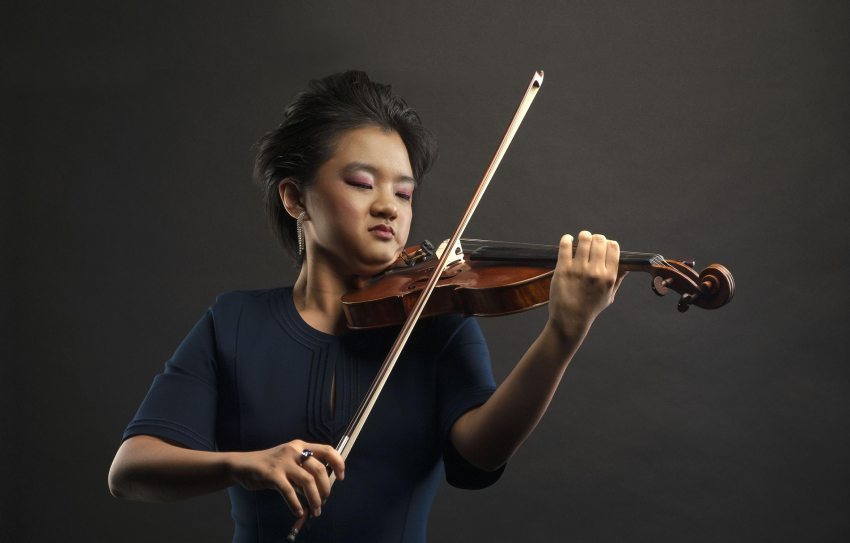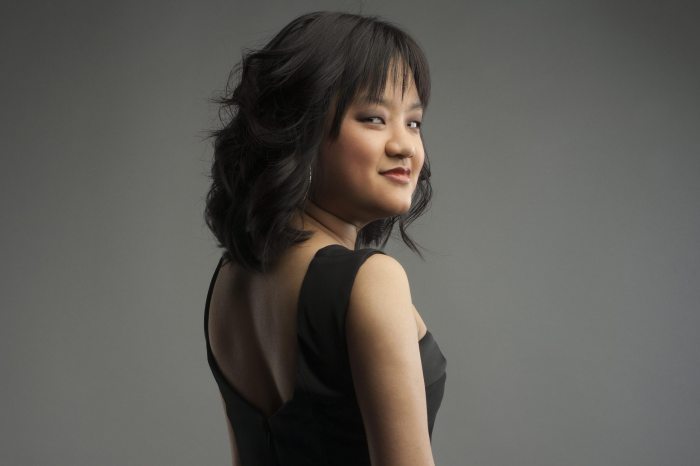”Hungarian artists are taken seriously abroad, too” – Miranda Liu, one of the world's youngest concertmasters
Miranda Liu is no ordinary person. As well as becoming Concerto Budapest's concertmaster in 2016 at the age of 19, she is a violinist who is welcome in concert halls around the world. This interview was conducted in Hungarian and Miranda also speaks English, German, Russian and Spanish. She believes that there is always room for improvement for everyone, and to this day she turns to her master for advice before every major musical challenge. At the end of August, for the fourth time, she organized the New Millennium International Chamber Music Festival, which also included workshops to help musicians.

You are young and a woman. If the reports of others are to be believed, this pairing is not necessarily a straight path to success in your profession either.
It is true that in the world of classical music - especially for conductors, composers and concertmasters - men are still in the majority, but fortunately, we can see progress in this area too. I feel lucky to have been supported in my career by my environment.
How did you discover the artist in yourself?
I've always loved music, my mum is a piano teacher, so I started playing music at an early age, and I decided I wanted to be a violinist when I was nine.
You first took up the piano, why did you decide to take up the violin?
I preferred the sound of it and the way I could communicate with the audience through the instrument.
I feel that the violin is more a part of my body than the piano.
Born in California, how much of a culture shock was it to move to Austria when you were ten?
The first challenge was the language because I didn't speak German at that time and all my classes were in German, so I had to pick it up quickly. By the way, European culture is very important in classical music and everyone should know it, wherever they live and work in the world.
In Salzburg, you were admitted to the Young Talents’ Class at the age of ten, which meant that you got into the competitive world of adult musicians as a child. How did you cope with this pressure to perform?
Musicians are under constant stress, and the most important moment is always the concert or competition, where they have to perform at their best. Fortunately, I always loved being on stage, showing what I could do in front of a lot of people, and that helped me to cope with high expectations as a child.
Is there much competition in this world?
Of course! You have to practice a lot, work a lot, because there are so many talented musicians. At the same time, it is not good to always have in mind to be better than the other.
I think everyone has to compete with themselves.
How did Budapest come into your sights?
I was already in Salzburg for my undergraduate studies when I came to the Liszt Ferenc Academy on an Erasmus scholarship, which of course meant another change of environment, but I am an adaptable person. Budapest has a very attractive cultural scene, great musicians working in Hungary, and there are fabulous concert venues and good audiences.
What is a good audience like?
(thinks) I can feel that the people are listening very carefully. The energy I feel when the audience is part of the musical magic is like nothing else.
You are one of the youngest concertmasters in the world. What are your responsibilities in this position?
The concertmaster leads the orchestra. In symphony orchestras, the conductor gives the signal, but the musicians also pay attention to the concertmaster because they are a more precise form of signal. For example, they show the stroke, the style, and the tempo. All this helps to implement in rehearsals what the conductor says, and especially with guest conductors, it is important that the concertmaster represents the orchestra. You also have to coordinate the musicians, write schedules, and of course pay attention to your colleagues, listen to them, and care about them.
It is important for the concertmaster to be a good leader not only in music-related matters.
Besides practicing, competing, and performing, you also organize high-profile events. From 25 to 30 August, hosted the New Millennium International Chamber Music Festival for the fourth time, with the addition of the Academy this year. What was the program like?
This year, the program has also been expanded with new international partnerships. Last year, I founded the V4 String Quartet, which made its Hungarian debut at the opening concert and had the specialty of performing Hungarian, Polish, Czech, and Slovak works. At the Academy, we also collaborated with Spanish, Austrian, and Bulgarian partners. There were workshops where we talked about important topics such as how to manage yourself, how to communicate in rehearsals, and how to stay healthy as a musician both physically and mentally. Thanks to the Erasmus+ grant, we were also able to provide financial support to disadvantaged musicians.
Is talent alone not enough?
Unfortunately not, and in today's world, even a lot of practice is no guarantee. If you don't know how to organize a concert, how to create an opportunity for yourself, it's very difficult. Managers don't come knocking on the door of practice rooms to offer concert opportunities, and not every musician can have their own manager! This is not taught in universities.
You mentioned that participants can also get health advice. Is the life of a musician that mentally demanding?
I think it's important that mental well-being is given more attention in this area too. If you look at sportsmen, when they are preparing for a competition, they are also working with psychologists to ensure that they can perform at their best in the competition. For musicians, this would be even more important because music is subjective: if someone wins, they don't do it in the same way as in swimming, for example, where it's who finishes first.
Being the best on stage is only half of it, the other half is how to deal with failure, how to deal with criticism when you don't win.
How do you avoid burnout?
It's always good to have a hobby. I love languages, I speak German, and Russian and I'm learning Spanish when I want to relax. I prefer active recreation.
Do you keep in touch with your master, does he also help you prepare for concerts and competitions?
I am grateful to Eszter Perényi, we keep in touch. Whenever I have an important solo concert, for example, the last one in Krakow, I call Aunt Eszter and she gives me a lesson. You can always improve, no matter how many degrees you have.
Which composer's musical world do you identify with the most?
For me, Béla Bartók's music is very natural, and his quartets are among the best of the 20th century. I have played his violin concerto many times and I like the folk influences in his works, the slow movements are my favourite.
You also perform abroad a lot. What do you think the prestige and visibility of Hungarian musicians are like in the world music scene?
There are a lot of successful Hungarian musicians playing at festivals, and I find that Hungarian artists are also taken seriously abroad.








